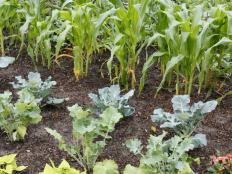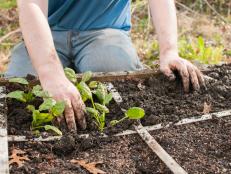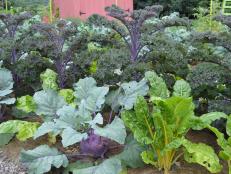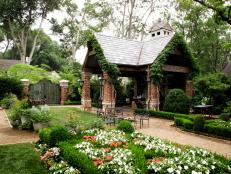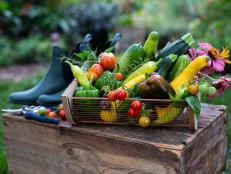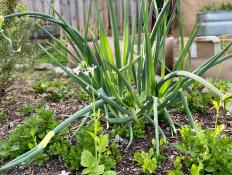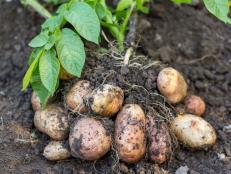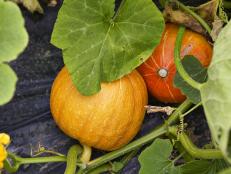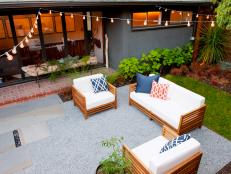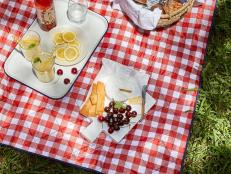Small-Space Vegetable Gardens
Make room on your fire escape or pot up some tomato plants—you can grow delicious fruits and veggies even if you don't have much space.

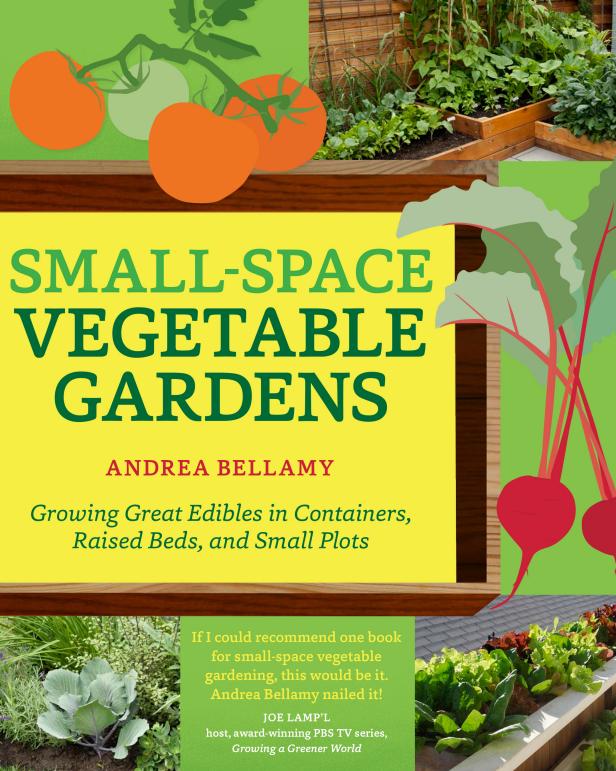
2014, Timber Press
You could say small is big—and it’s getting bigger.
We’ve been seeing a trend toward smaller gardens in recent years and the trend just keeps growing. It’s being fueled by changes in our lifestyles and even by where we live.
Some of us make our homes in cities or apartments, where the only patch of sunshine is on a balcony or windowsill. Others live in suburbia, where the lots are barely big enough for kids and pets and a postage-stamp plot of grass, so the eggplants and peppers get crowded out. More of us are simply too busy to manage a big garden.
But even if your time or space is limited, Andrea Bellamy, a garden columnist who writes the popular blog Heavy Petal, doesn’t want you to give up on your green thumb.
Bellamy is an urban, organic gardener who lives in Canada and her book, Small-Space Vegetable Gardens: Growing Great Edibles in Containers, Raised Beds, and Small Plots, aims to teach us how to grow fresh, healthy foods even if we don’t have a lot of room.
Her book is filled with space-saving ideas. Maybe you can turn that wide strip of grass between your sidewalk and the street into a bed of lettuce and other greens. Or how about talking to your employer into letting the staff tend a shared garden to lower stress and get some exercise?
Photos in the book encourage looking around to find unusual containers you can press into service, like an old canoe. Bellamy shares a picture of beans climbing a section of wooden fence and recommends trellises so you can grow cucumbers, melons and more vertically, lifting them above and away from competing plants and freeing up more ground space.
She also gives the basics on training figs, plums and other fruits into espaliered forms, although you'll need to look elsewhere for detailed information on this technique.
While Bellamy describes how to make a raised bed, gardeners with creaky knees or bad backs might wish she'd included instructions on adding legs to the bed, so they could reach in without bending over. Wheeled beds can also be rolled around on a deck or other flat surface, so gardeners who have too much shade in their limited space can chase the sun.
I wish more design diagrams had been included. When you're tucking veggies into a small but visible spot, like your front yard, it's nice to have an eye-pleasing combination of colors and textures. Even when I'm growing edible I want my garden to look good, but sometimes I could use some help.
Bellamy makes some important points. Successful small-space gardening isn't just about planting in containers, raised beds or whatever nooks and niches you can find. It's also vital to make the most of what you have. She explains how to improve and amend your soil and combat weeds and pests to maximize your harvest.
She also encourages growing cut-and-come-again crops—like kale—and planting in succession so fast-maturing crops like radishes are replaced with beans so space isn't wasted after the root crops are pulled.
In the back of the book, Bellamy includes a list of edibles from A to Z, giving the basic cultural requirements for plants that range from apples to zucchini. Beginning gardeners will find the list handy and helpful. Seasoned pros will find ideas in each chapter for increasing their harvest, no matter how limited their space.

.-Battle-on-the-Beach-courtesy-of-HGTV.-.jpg.rend.hgtvcom.196.196.suffix/1714761529029.jpeg)




